Have a great week in this crazy weather!
|
Two events are happening this week in Pittsburgh that tap into important social justice issues. The first is at Chatham tomorrow afternoon. Two other professors and I will be sharing our stories of participation in the Blair Mountain March last May. Mountain Top Removal is a practice that is devastating to the natural environment as well as the physical, emotional, and communal well-being of the people in the area - and it is notable that the people most significantly affected are among the poorest in the nation. (Excuse the wonky graphics.... had a hard time getting these up!) Then Thursday, late afternoon, we will be on Greenfield Bridge to advocate for jobs for people who want to work - and for the possibility of creating these jobs to repair the decaying infrastructure of the city - like the Greenfield Bridge. Meaningful work that contributes to the community as well as the family's financial health - sounds like a good idea! On another note - I met a very cool gentleman at the Square today - the ecological artist Alan Kettler - who will be having an exhibit at the Square on December 3. Stay tuned for more information - I am predicting that you will LOVE his work. Even just viewing it online this morning helped me to start the day with a light and hopeful heart - hard to explain, but check it out.
Have a great week in this crazy weather!
0 Comments
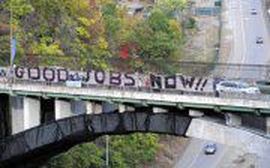 How often do we really stop to think about our common infrastructure, and how greatly we depend upon it each day to do our jobs and take care of our families? Public infrastructure includes many different elements, including roads and highways, bridges, waste and sewer systems and water treatment and distribution systems, transportation systems... These are public works that we make use of every day. And in the US, they need work. Physically, many structures are decaying. Systemically, the works haven't yet caught up to what we need in order to protect the environment in the present and long-term. Think for a minute. Under President Eisenhower, massive work was done to create interstate highways that crossed the country - this coincided time-wise with the explosion of the automobile industry. These efforts led to massive changes in our cities and our daily lives - the birth of the suburbs and shopping centers and malls, the deaths of inner cities and mom-and-pop businesses. We are now recognizing how the reliance on roads and cars has affected us in unexpected and not-so-good ways... but that's another story for another day. In the 21st century, we are called on to re-examine our structures and systems in terms of safety, environmental, social, and economic needs. We have the ability to collaboratively imagine how we might meet our communal needs in better ways, taking into account what we now know about pollution, the effects of degraded environments on economic, physical, and mental health, the importance of community connections and relationships for our well-being, and so on. It is a different paradigm that we must use, as we imagine and create together. In Pittsburgh, we have wonderful opportunities to think about these issues - and to act. We need our bridges to function as an integrated city - they need work. Our sewer and water systems are ready for an overhaul. We have willing and able citizens who need jobs. We have the knowledge, skill, and experience base within our citizenry to make these changes in ways that will protect the environment and our health and well-being. Let's talk. First, from the Pittsburgh Interfaith Impact Network comes an opportunity for people to be visible in showing both the need for jobs for citizens who really want to work AND the need for the nation to strengthen its physical infrastructure. According to PIIN, the Greenfield Bridge is structurally deficient and falling apart. Millions of unemployed people could be put to work fixing crumbling roads, bridges, and other infrastructure like this, across the country - let's urge our leaders to think about how this could be a WIN-WIN situation. Actually, let's become leaders - become part of a Participatory Democracy, as opposed to or even side by side with a Representative Democracy, speaking out directly about concerns and creating and communicating about possible solutions. If you want to be present at an event that will involve a conversation that addresses both the jobs issue and the infrastructure needs in a positive direction, consider coming to the Day of Action on the Greenfield Bridge. Details are below: When: Thursday, November 17 · 5:30pm - 8:30pm Where: Gather at Magee Park, followed by a march to the Greenfield Bridge, 745 Greenfield Ave, Pittsburgh, PA AND.... EDUCATE YOURSELF ABOUT ANOTHER ASPECT OF THE INFRASTRUCTURE - OUR AGING SEWERS... Alcosan is currently proposing one of the most comprehensive overhauls of our sewer system that we have ever seen - it will take years to complete. The work has not yet been started, so this is the time to speak up about using what we now know about green technology to do this project right. Alcosan is holding a series of town meetings to solicit input from community members about their plans - info is available on their web-site. Tonight, there will be a town meeting on the Southside. Details: Wednesday, November 9th, 5:30pm - 7:30pm I.B.E.W. #5 Circuit Center & Ballroom (Region-wide) 5 Hot Metal Street | Pittsburgh, PA 15203 How fortunate we are to be able to speak up and show up in public to address situations that concern all of us. I hope to see you at one of these events! 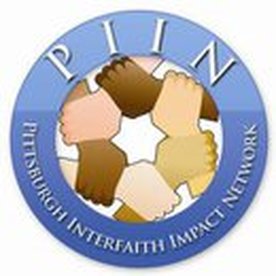 Last night I was privileged to attend the fall gathering of the Pittsburgh Interfaith Impact Network. The meeting was held at Rodef Shalom - which was packed with over 1000 people who represented many races and ethnic backgrounds, as well as many religions and faith traditions. PIIN is a vibrant group in Pittsburgh modeled on the Gamaliel Foundation which has as its mission "teaching ordinary citizens to unleash the power within themselves to collectively impact the social, political, environmental, and economic decisions affecting their lives." How cool is that? What a powerful gathering! The first area of focus in the meeting was gun violence - remember Rev. Glenn Grayson and Marsha Grayson who lost their son G to random gun violence a year ago? Rev. Glenn spoke - actually raised the roof with his pain and passion about getting rid of the guns that are floating around the city and are being used to kill primarily young black men. Others spoke with wisdom and fervor about civil rights of immigrants, documented and undocumented, the need for better public transportation, the very significant racial gap in education - there is about a two grade-level gap in national reading and math assessment test scores between black students and white students - unacceptable, and employment issues. Many citizens spoke of trying to find work at a living, family supporting wage - wanting desperately to do work that would enable them to buy food and clothing, and pay for housing for their families. Other spoke of having to wait an hour to catch a bus to take their child to daycare so that they could then go to work, only to have the bus pass them by because it was full. These pleas were particularly meaningful during this time of increasing recognition of the enormous gap between rich and poor. For example, Fred Smith, founder of Fed Ex, has had an average annual salary of $9.79 million over the last six years, according to Forbes Magazine. His employees average between $15-22 per hour. Thus, Occupy X. I didn't realize it at first, but the timing of this meeting was critical - the week before the November elections. Many candidates and office-holders were invited to the meeting, and several, but not all came. Highlights included Police Chief Nate Harper's commitment to step up the efforts to track and control guns in the city (hopefully with the Mayor's support - he was not present); School Superintendent Linda Lane's commitment to distribute the budget more equitably between all neighborhood schools, regardless of neighborhood income or racial make-up; and State Rep. Dan Frankel's (D - Squirrel Hill) commitment to advocate with Governor Corbett - who was not present - for more funding for public transportation in the city. We can vote in many ways - during elections next week, with our dollars in terms of spending locally instead of in support of huge corporations, and with our feet and bodies - stay tuned for information about a rally on November 17th at the Greenfield Bridge - where we will speak up about the need for jobs to support our families and to support the nation, particularly in light of our country's need for strengthening of our crumbling infrastructure. In the meantime, down the road at F.U.S.E.... Jordan Howard will be hosting a release party for his forthcoming debut mixtape, "the DREAM". The event will take place at the F.U.S.E. Center in East Liberty. Admission is a $5 donation at the door. This $5 donation will allow you to gain access to all of the evening's festivities, and you will receive a CD copy of "the DREAM". Jordan will also be performing 3 tracks from the mixtape that evening. The MC for the evening will be Pittsburgh's own DJ Sally Grace. Hope to see everyone there! 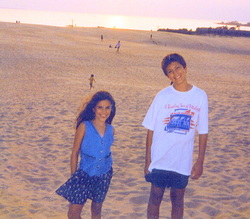 Mikey and Julie - Nags Head Here is a story for our times, originally published by Donald B. Ardell, Ph.D. Think about it... It was many years ago that villagers in Downstream recall spotting the first body in the river. Some old timers remember how Spartan were the facilities and procedures for managing that short of thing. Sometimes, they say, it would take hours to pull 10 people from the river, and even then only a few would survive. Though the number of victims in the river has increased greatly in recent years, the good folks of Downstream have responded admirably to the challenge. Their rescue system is clearly second to none: most people discovered in the swirling waters are reached within twenty minutes, many in less than ten. Only a small number drown each day before help arrives -- a big improvement from the way it used to be. Talk to the people of Downstream and they'll speak with pride about the new hospital by the edge of the waters, the flotilla of rescue boats ready for service at a moment's notice, the comprehensive health plans for coordinating all the manpower involved, and the large number of highly trained and dedicated swimmers always ready to risk their lives to save victims from the raging currents. Sure it costs a lot but, say the Downstreamers, what else can decent people do except to provide whatever is necessary when human lives are at stake. Oh, a few people in Downstream have raised the question now and again, but most folks show little interest in what's happening Upstream. It seems there's so much to do to help those in the river that nobody's got time to check how all those bodies are getting there in the first place. That's the way things are, sometimes. A few days ago, the American Academy of Pediatrics presented its report about children and ADHD or Attention Deficit Hyperactivity Disorder. The report was comprehensive in its discussions about what ADHD might look like, the course of the illness, and how it should be treated. And it included discussions about treatment of preschool-aged children with parent counseling approaches, behavior therapy, and in more extreme circumstances, medication. The authors note that long-term effects of medications on brain development are not known for sure. ADHD is often described as a neuro-developmental disorder that starts in childhood and is characterized by chronic inattention, impulsiveness, and hyperactivity. Children (and teens and adults) diagnosed with ADHD often have co-occurring disorders, including learning problems, anxiety, depression, and others. The diagnosis has morphed over the last few decades, and the number of children falling under its umbrella has increased. The report issued last week by AAP also noted the expanded age range for ADHD, listed as formerly 6-12 years of age, and now described as 4-18 years of age. Up to 8% of children, according to the report, have ADHD. I do not doubt that many children and adolescents have genuine neuro-developmental problems that are revealed in the types of behaviors described above. I also know that the types of behaviors associated with ADHD are often seen with children with other problems, as noted by the Center for Disease Control. I have so many questions and concerns. Neurological development, particularly prenatally and during childhood, is sensitive to many external factors, including drugs and other substances ingested by the mother while pregnant and, before and after birth, many toxins in the environment. Toxins in the environment include chemicals in the air, water, and soil, and chemicals in foods. Neurological development is also sensitive to social and family environment factors. For example, exposures to trauma or violence can result in significant change in brain functioning and/or behavior. And we don't yet know what the long-term effects of being "plugged-in" to long periods of screen time on computers and televisions at a very young age might have on brain development. Research in all of these areas is ongoing. I also have questions about other issues related to behavior and development. How do chronic chaos and disorganization in a child's life affect her? How might standardized testing from a young age and, more important, educational environments that emphasize the importance of standardized test scores over developmentally appropriate educational practices affect a child? What benefits might there be in giving a child time to dream and imagine, in granting lots of lazy "swinging on the gate" time? There are some studies that indicate that inattentive children show improved attention following unstructured time outdoors in nature. What does that mean? Some of my best and most vivid memories from my parenting years are of those times when I stepped back and just let Michael and Julie "be" - alone or with friends. One winter, after a scary ER visit, Julie turned our dining room into a pediatrician's office, complete with a doctor's kit, "patients," computers and files, a telephone, and note-pads. She played in there for hours, sometimes alone and sometimes with her brother or friends. I remember going down into our basement one October to find the den transformed by Michael and his neighborhood friends into a Haunted House, complete with spider webs and beheaded dolls hanging from the ceiling. There were long late nights in the summer with kids from 3-13 years of age running around among the yards playing King of the Mountain. There were also times when the kids watched a lot of TV and played video games, but these were balanced out by playing outdoors or by sitting and listening to stories. What do you recall from your years of parenting your children? From your own childhood? Talking about this is more than nostalgia. I do recognize that many children do not have the good fortune that other kids have - the space, the safe neighborhood or home, the supervision, the willingness of parents to tolerate messes. I am very grateful for what we were able to give our children. But beyond nostalgia - developmental research is clear that play and imagination are very important experiences for all children. These experiences help children be ready and willing to learn in more structured environments, foster confidence and increase self-awareness, and teach valuable socialization skills. They help children learn to pay attention, take turns, and sit still when needed. I would not want to deny any child or family effective treatment - behavioral, family, or medication - if it is truly needed, if the child's well-being in terms of learning, friendships, and family relationships is significantly impaired by challenging behaviors. At the same time, I want to urge all of us - psychologists, physicians, sociologists, clergy, parents, grandparents, teachers and other educators, nurses - everyone - to begin to look upstream for causes and for possible lapses in our collective judgment or practices that may have contributed to unhealthy environments and/or unrealistic expectations for our children. These are complex issues - there are no easy answers. But, at the very least, asking questions and searching for answers is necessary. This is our responsibility - to our children and grandchildren seven generations out, and to our society. P.S. As I was writing this, Julie sent me the picture below... 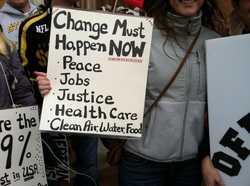 There is a prayer practice called "lectio divina" - slow, contemplative reading of sacred works or poems in which one listens carefully to one's heart, to the still small voice of a greater wisdom that might be speaking through the words. A few years ago, in a centering prayer group, the leader read the story of Jesus and Bartimaeus, the blind beggar. She read the story, slowly and softly. She asked us to listen closely, to sense where we might have been in this scene of Jesus, followed by crowds and his disciples, coming upon a blind man begging him for mercy. Where would we be? This is what I heard, in the stillness of my heart. I would be sitting at a Starbucks across the road, watching and waiting. I would be sipping tea and reading a book, unobtrusively observing the crowds following Jesus, hanging on him, asking him for help. I would watch to see what would happen. Maybe after the crowds thinned out and things settled down, I would approach Jesus. I would ask him how he was, who he was. I would say that his life looked hard, and I wondered how that was for him. And Bartimaeus? Yes, I would have wanted to reach out to him as well. But in the crowd? Nope. Not likely. So that was where I was in that public scene. I most definitely was not part of the crowd of people, the public "hangers-on" in my mind, nor was I one of the disciples, committed to the mysterious journey that lay ahead. I also did not rush over, in this public arena, to help Bartimaeus myself. I watched by the side of the road. Safe, private. Curious, moved, but uncommitted. Not going to be part of the crowd. I have been taking baby steps away from Starbucks toward the crowds, toward the beggar. I have been taking tiny steps toward being part of it all, accepting that I won't lose who I am in the crowd and that I might even learn something or have something to contribute myself. And realizing that maybe voices raised together in a crowd can mean something. So I went to Blair Mountain this summer and today I went downtown with the Occupy Pittsburgh group. The sign above kind of sums up today. The common factor among the people who were at the Occupy Pittsburgh march was the "commons" - all eyes were on humanity, the larger good, not on the bottom line. Poverty, race, education and health care cuts, the huge costs of war, student debt, environmental destruction - today I heard voices raised for people, not dollars. Justice and equity, fairness, empathy, accountability and responsibility. And you know what? It is all connected. There were babies in strollers, students from grade school through college, union members, older graying seasoned protesters, clergy, veterans. I got to see my Kalie and her family. Everyone was respectful, kind, generous. There was joy in the group, along with a sense of frustration that things have come to this point. There was a feeling of - "Enough. No more." I felt privileged to be part of the group, to be among the crowd. This is what democracy looks like. 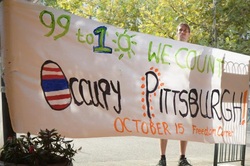 Occupy Pittsburgh Day of Action - Saturday morning. All ages, all kinds of people. Hope to see you there, rain or shine. 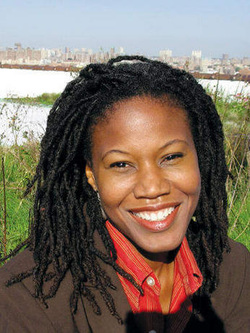 Majora Carter - Metropolismag.com Sunday was a magical day. I'll start where I ended, going backwards through the day. I had the distinct privilege of hearing Majora Carter speak at the AASHE (Association for the Advancement of Sustainability in Higher Education) 2011 Conference at Pittsburgh's David L. Lawrence Convention Center. This is one amazing woman, a fireball of wisdom and energy who is changing communities one by one. Majora lives in the Bronx - grew up there - and has worked with other community members to begin a transformation of the borough and of the lives of its residents. She is an eco-activist whose work and ideas are spreading across the globe. Check her out at these numerous sites to learn more about her and her work - I think she is a prophet for the day and I think you will be inspired. First, there is her award-winning TED Talk - Greening the Ghetto, where I first learned of her. Then - she hosts a public radio program, The Promised Land, in which she shares stories of visionaries and leaders. And, she has started a company, the Majora Carter Group - her vision, in her words: “I believe that you shouldn’t have to leave your neighborhood to live in a better one... When we allow or encourage our economic practices to tax the environment, we inadvertently tax people too - that ends up costing all of us a lot of money. When we add the moral costs of denying future generations a clean and productive planet to the degraded quality of life offered our fellow citizens who are unable to escape the environmental sacrifice zones - zones created through our collective negligence - the toll becomes untenable... But when we place Democracy ahead of poorly regulated Capitalism in all of our decisions, cost savings - often overlooked by conventional thinking - cascade from many directions." Regardless of your particular political affiliation, it would be hard to find fault with this woman's work - she engages under- and unemployed community members in productive work to better the natural and built environments in which they live, creating jobs as well as healthy and sustainable places to live - not unlike the Civilian Conservation Corps and other groups that built our nation's infrastructure decades ago. Majora Carter's existence gives me hope. Before her talk, I browsed through the bookstore at the conference - and I watched author, professor, and environmentalist Bill McKibben talk with students and sign their books. I know that I am a little weird, but tears came to my eyes as I looked through the hundreds of books written to instruct, inspire, argue with people - to wake people up to what is going on around us, to the complicated but real connections between our economic and financial stability, our health and well-being, and the state of our environment, our natural world, across the globe. It gives me hope to see the energy that many very bright people are putting into creative and workable solutions to this state of affairs. Backing up a little more... I spent the morning at the Allegheny Unitarian Universalist Church - had attended a couple of times before, and was feeling particularly drawn to stop in this week for some reason. On this Yom Kippur weekend of atonement and forgiveness, Holocaust survivor and American soldier Fritz Ottenheimer, German clarinetist Susanna Ortner-Roberts, and her husband, pianist Tom Roberts, presented a moving program - "Who are these Germans?" Fritz's tales of his childhood in Germany during the early years of Hitler's reign depicted the challenges and horrors associated with lumping all people of one race, religion, or nationality together into one big glob - in his stories, there were cruel, awful Germans and kind, brave Germans and many more who were silent bystanders. In between his stories, Susanna's clarinet sang with mournful and soulful Klezmer tunes, accompanied by Tom's piano. Then Susanna spoke of her own emigration from Germany to the US, and of the desire of her generation not to feel guilt for the past atrocities which they did not commit, but to learn from them and to work to make the world a better place. Fritz and Susanna present their program to schools, churches, temples, community groups - anywhere people are interested in learning how to tear down walls and reach out to hold hands. I felt tears once again, and hope in my breast. Julie spent her first Yom Kippur with Greg and his family. I think Michael and Leah were with her family in NYC. I love thinking about this time of year, this holy day, and am happy and grateful that my children are in relationships where they can learn about it. There are wonderful traditions that lead up to Yom Kippur, practices exemplified in the work of Fritz, Susanna, Tom, and Majora ... among them, charity - the ethical imperative to contribute our resources to support the needy, our communal organizations, and to make the world a better place; repentance - acknowledging our shortcomings, showing regret for what we did, and resolving to not make the same mistakes again; and prayer - opening our heart, putting thoughts to words, praying in the plural to ask for the good of all, not for our own personal needs. It has been rainy today - wet brown leaves cover my front walk and there is the smell of wood smoke in the air. I have been listening to old Judy Collins albums - just read her book Morning, Noon, and Night: Living the Creative Life, written several years after her own recovery from her son's suicide and her own abuse of alcohol. She tells the tale of her son's death in Sanity and Grace, and of her own journey back to life and giving. Out of darkness... music, light, and love. And hope. 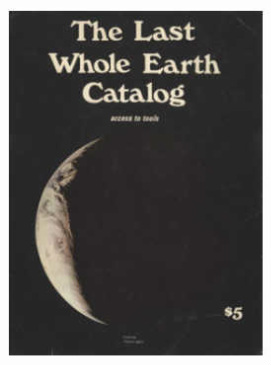 I just heard that Steve Jobs died. Very sad. I was listening to his 2005 commencement address at Stanford University about "loving what you do" - in work, in relationships, in every part of your life. Jobs spoke of the love he had for his work and family - through all of his life's ups and downs. He ended his commencement address with a quote from the final issue of the Whole Earth Catalog. Stay Hungry. Stay Foolish. I have been thinking about how to write about the OWS event - the Occupy Wall Street protests. I first heard about the plans when I participated in the March on Blair Mountain this past summer, and have been thinking about it ever since. There are a lot of young - and not so young - people in NYC right now, calling attention to the pretty complicated state of affairs in our country. This state of affairs? One in which corporate interests wield a significant amount of power over government policies and practices. The power wielded is often not respectful of the health and well-being of the "commons" - it is often more protective of the interests of the top 1%, to use the language of many of the protesters. Of course, not all corporations and corporate people are contributing to the problem. Steve Jobs' creativity, genius, and leadership have benefited people across the globe. Warren Buffett, as just one other example, supports the recent conversations about increasing taxation of the very wealthy. Others contribute mightily to public welfare. But this isn't always the case. Think about how long it is taking to hold a big corporation accountable for the devastation directly caused by the BP Gulf Oil Spill. Big businesses can be seen as "people" for the purposes of contributing to political campaigns, but they aren't "people" who can be held accountable for crimes against humans and nature in the same way that you and I would? And the mortgage disaster sleight of hand games. It doesn't make sense to me. Businesses ARE people - the business or corporation should not provide an invisibility cloak that absolves the owners and decision-makers of responsibility for their behavior. Really. This is not Hogwarts. On my drive back home from Kentucky this past weekend, I listened to a podcast from The New School at Commonweal: Exploring Nature, Culture, and Inner Life. Host Michael Lerner was interviewing Richard Heinberg, author of The End of Growth: Adapting to Our New Economic Reality, as well as other books about the changing times. Journalist Heinberg maintains that traditional economic theories of the industrial age - theories that support the idea that economies, based on industrial activities made possible by fossil fuels, should and must continually grow - are no longer useful. He proposes that three factors are converging in a way that will require a totally new paradigm for evaluating the health of a society - the converging factors are resource depletion, environmental disasters and resulting impacts, and enormous debt. Heinberg - and many others across the globe as well - holds that a "healthy" GDP does not automatically translate into health and well-being of the society. And striving to continually make more, spend more, make more, spend more, as individuals or as nations, is no longer sustainable. The earth's resources cannot support this any longer, without significant costs for the future. We need to find other ways of measuring health and well-being of ourselves and our society than the monetary bottom line, and to create a culture that promotes and supports the healthier ways of thinking, relating, and doing. Economics and employment would definitely be part of such an index, but so would ethical living, happiness, physical and mental health, moral and social health, and abundant, safe, and clean natural resources. I respect what the OWS people are trying to do, hungry and foolish though they may be - at the very least, they are trying to raise awareness of power and its repercussions, ill or good. Let's really think about where our power should come from - whose thoughts and needs and ideas should be considered when decisions about the public welfare are being made. And let's think about the ways in which we can exercise our own voices, whether in words that we write to government officials or newspapers, in conversations with friends and neighbors and in classrooms and offices, or in public protests of our own. We can use what is happening on Wall Street to ask questions and start conversations and learn more - we all have to be part of the solution of turning things around. As one people, united, we acknowledge the reality: that the future of the human race requires the cooperation of its members; that our system must protect our rights, and upon corruption of that system, it is up to the individuals to protect their own rights, and those of their neighbors; that a democratic government derives its just power from the people, but corporations do not seek consent to extract wealth from the people and the Earth; and that no true democracy is attainable when the process is determined by economic power. We come to you at a time when corporations, which place profit over people, self-interest over justice, and oppression over equality, run our governments. We have peaceably assembled here, as is our right, to let these facts be known. —From the Declaration of Occupy Wall Street And it isn't just corporations. It is us as well. We are also culpable and need to open our eyes and get real about what matters. More about that coming soon. Stay Hungry, Stay Foolish. Indeed. Rest in peace, Steve Jobs. 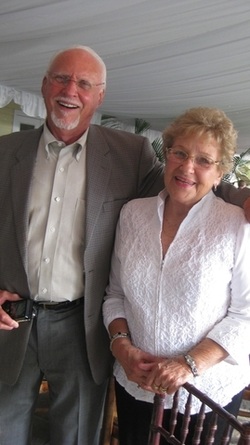 The King and Queen of Overbrook Circle A good time - and a cold time - was had by all! On Friday and Saturday, my two sisters Valerie and Jennifer, my brother Ray, and my parents welcomed dozens of people to this sale of 45 years' worth of "stuff" that had accumulated in our house on Overbrook. (Hmm. I notice that I call it "our" house, even though I haven't lived there in decades and even though I haven't contributed a dime to its mortgage!) It was a walk down memory lane. Old clothes, tools, books, records (remember A Taste of Honey? The Ray Conniff Singers?), and many many coffee makers and spatulas. Towels, sheets and blankets from the lake house... colorful margarita glasses and a bright yellow end table and random remotes and big-ass phones with cords... and a plastic Budweiser Beer sign that my dad insisted on pricing at $35 (no, it didn't sell). And I found my "letter jacket" from high school marching band, which of course no longer fits but which I of course did not sell. And I found a Senior Scholastic Magazine from December 1969. The back page had an ad for Royal Typewriters - "Ask mom and dad to get one for you! You will get better grades and - groovy! - it has a transistor radio in its case!" One article wondered about what was ahead in the 1970s - did you know that computers were big machines that could solve hard problems very fast? Maybe someday, every college will have one on its campus! I arrived late Thursday and apparently had missed the most exciting and slightly tense part of the pre-sale process - the negotiation among family members about how to price the various items. Of course, Mom and Dad had the last word, but each person had their opinions based on emotional attachment to the thing or to vast experience with other garage sales. Not surprisingly, given my push-over personality, once the sale started I was tempted to let people pay whatever they wanted. Fortunately, we had rules - no price cuts until after noon. When my Dad's back was turned, however, I often charged only a dime, instead of a quarter, for a flower vase or mug. Did I mention that it was about 50 degrees? A windy 50 that led me to root through my parents' drawers and closet for socks and coats. Each visitor seemed to be on a mission. We had many requests for military stuff - uniforms, documents, guns, knives - and for stamps, coins, and jewelry. We did have several small baggies filled with costume jewelry - miscellaneous necklaces and earrings from across the decades. We found some pretty cool big clunky earrings from the 1980s, as well as some novelty items. Somehow, no matter how many times we tucked them into bags with other pieces, the blinking Santa Claus earrings ended up alone on the table, tucked under some place mats or tea towels. And my mother parted with her collection of crystal salt cellars, one by one, many with its own tiny spoon. Many people had stories to tell - one man bought a coffee maker for his son who could not find a replacement carafe to fit his fancy coffee maker; another bought a bin of chunky chalk for his grandchildren and talked about how they love to draw on his sidewalk when they visit. Several families with only one English-speaking member came and bought toys and household goods. It felt very good to be passing things that we no longer used on to others who needed them. Sustainability - recycling and reusing. My brother and sisters and I had many conversations about "stuff." We all, to varying degrees acknowledged that we had way too much stuff, and after being surrounded by stuff for two days, we pledged to go clean out our own attics and closets. Stuff and stuff. Last Thursday, the Pittsburgh Post-Gazette published an article Lessons from the Amish. Tim Grant, the author, described how the Amish have easily weathered the economic recession that has plagued the nation. In Amish communities, people live below their means. Imagine that - below their means. What a sense of freedom that would bring - freedom and energy that can be devoted to more important things. On my way home, I had a minor car accident (well, I drove over a curb at a gas station in Flatwoods, West Virginia and three kind men lifted the car back onto the road). I bent something - I noticed immediately that the steering was off - and yet, like a fool, I drove the remaining two hours home, 45 miles an hour, flashers flashing. Steve's nephew, Donny, owns a body shop and is taking care of things - he did tell me that I should NOT have driven the car home, but I did make it. So I am without a car for several days and get to ride the bus again. And then. My furnace isn't working - so we are a bit chilly. I plan to sleep in Steve's red WYEP sweatshirt tonight 'cause it has a big hood. But as I used to tell my kids when they were young (and a little whiny about not getting what they wanted) - "Yes, we are rich. Absolutely. We have a roof over our heads, food to eat, clothes to wear, and FAMILY! We are RICH IN LOVE!" They would roll their eyes - but I know they got it. 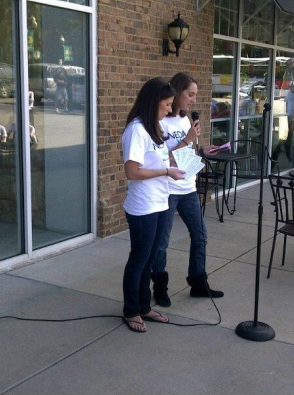 It has been a very busy couple of weeks. Two weeks ago, I signed on to the "No Impact Week" experiment - making small changes each day in an effort to lower my impact on the environment. The tiny behaviors included taking the bus to work instead of driving, eating less meat, being very conscious of "trash" that I was creating (the recommendation was actually that you carry your trash with you through the week), buying only what I needed. These are actually behaviors that I have tried to adopt for some time but, as is the case with many of us, I don't practice them consistently. So I would say that, over the last few years, my "footprint" has shrunken a bit, I have walked a little more lightly on the earth - but I am far from living a life of "no impact." At the end of the week, I flew (there went any environmental savings accrued during the week!) to St. Louis to celebrate with Julie. She had helped to organize the National Eating Disorders Awareness Walk in St. Louis this fall, and was scheduled to speak after the walk. It was a beautiful day, in all ways. Julie, her boyfriend Greg, her roommate Lucy, pup Paolo, and I joined several dozen people in this fund-raising event. One group of walkers had raised quite a bit of money in memory of their loved one, Erika, who had died the previous year from complications related to her eating disorder. Brave people. So I listened to Julie and her friend Jess talk about life after ED - the richness and satisfaction and amazingly normal ups and downs that they have both experienced in the last few years. From a window two floors above the parking lot where we were meeting, several young women, too weak and ill to walk, watched and listened. Beautiful young women with big hearts and big dreams lying dormant - dreams that will hopefully become reality for them in the not-so-distant future. I looked at them and remembered my own fears during the frightening years of Julie's illness, and said prayers of gratitude for Julie's health and prayers of hope for the other women's futures. Julie, Greg, and I spent lots of time together over the weekend celebrating. What were we celebrating? Just being alive and being in one another's lives. We ate a lot of good food - very good food - talked about work and school and travels, and just hung out together. The time we spent together had a big impact on me - it refilled my heart with Julie-love which will hopefully last until Thanksgiving. When we hear and talk about environmental issues and sustainability, one common experience is to learn about sacrifices that we must make in the future, if the earth and its inhabitants are to stay healthy. What must we give up? How can we lower our impact on the earth? Many such conversations focus on the "take-away" column. I love talking to and learning about people who know about other ways to view the changes that may lie ahead - these folks think about how wonderful it can be to pull back and look at what is most important, most essential in life - and most of the time what they are looking at is relationships. We will buy and consume less, and will spend more time with one another. If material resources do decline, we will offer help to our neighbors and friends, and receive help from them in turn. And hey! Maybe we should just do that now anyway! Two exciting and creative views are offered by Transition groups across the world (check this out to learn about one such group in Pittsburgh) and by Colin Beavan, the No Impact Man. So it was a week of greater awareness of the impact of my own carbon footprint, followed by several days of appreciating and celebrating the big impact of my daughter's life - on my own life and on the lives of other loved ones. Where are the big, amazing, powerful, and positive impacts in your life - around you and within you? Tonight - Thursday September 22 - 6-8 pm at the Square Cafe - 1137 Braddock Avenue.
Here is F.U.S.E.'s mission statement: Mission: Pittsburgh's first explosive non-profit! Passionately committed to bridging Pittsburgh's literacy gap faced by urban youth, F.U.S.E. merges artistic and authentic learning in a safe, neutral, and green space. The pursuit of social and emotional wellness is our core value. We believe this vision, coupled with explicit connections and community relationships, will lead youth to their own self-advocacy and actualization. If you cannot come tonight, check out the program's "wish list" - see how you can help. Your Environmental Road Trip....
Tuesday 9/20 - Eddy Theater - Chatham University, Woodland Road - doors open at 6:30; film at 7 pm. SOLD OUT! Second screening - Wednesday 9/21 - Theater at Homewood Library, 7101 Hamilton Ave, Pittsburgh, PA 15208. Doors open at 6:30pm, screening from 7:00pm - 9:00pm, followed by Q&A with Mark. 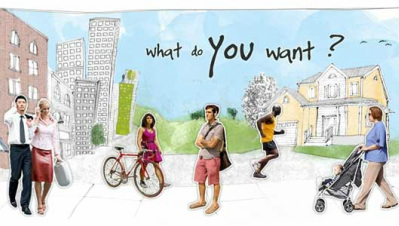 You may have heard of the No Impact Man film, launched a couple of years ago: A newly self-proclaimed environmentalist who could no longer avoid pointing the finger at himself, Colin leaves behind his liberal complacency and vows to make as little environmental impact as possible for one year. No more automated transportation, no more electricity, no more non-local food, no more material consumption…no problem. That is, until his espresso-guzzling, retail-worshipping wife, Michelle, and their two year-old daughter are dragged into the fray. What began as one man’s environmental experiment quickly becomes an experiment in how much one woman is willing to sacrifice for her husband’s dreams. I haven't yet seen the film, but today I just learned of the No Impact Week Project, described by the original No Impact Man Colin Beavan as a one-week carbon cleanse - a time to explore what a difference no (or lower) impact living can make for your quality of life. The week-long experiment is co-sponsored by Yes! Magazine and is free. So I registered for this and... IT STARTS TOMORROW! SEPTEMBER 18 - YIKES! When I registered, I was immediately sent a guide, which I have posted on the Resources page. Below is Sunday's challenge - check out the guide if you are interested in details and helpful links: Welcome to Day 1 of your No Impact Experiment! Live a fuller and happier life by buying less stuff. This first challenge is about doing more with less. People around the world are discovering that they'd rather spend time making social connections than buying new stuff. To learn why this is such an important part of living a lower impact life, watch one of our favorite videos, The Story of Stuff. The No Impact Experiment is a truncated version of Colin Beavan’s experience trying to live in New York City with no environmental impact. Three months into Colin’s year-long experiment, he stopped consuming new goods (except food). As his wife Michelle discovered, when you kick your shopping habit, you’ll save money, have more time to spend with your family and friends, discover more space in your house, andmaybe — just maybe — you’ll discover that less really IS more. [Okay, I just have to say here that I am a tad offended by the sexist tone of these blurbs - but I will try to withhold judgment until I see the movie :) ] I recognize that it is truly a luxury to undertake such a project - to even think about, "OK, I could buy that but I won't." It is an odd situation to be in, trying to moderate shopping, consuming, wasting, when so many across the world are in no position at all to have anything to moderate. And I am certain that most of our grandparents and great-grandparents would look askance at these efforts to LEARN a style of living that they must have lived by necessity each day. Nevertheless, I think about this stuff a lot and am open to anything that helps me be more aware of my place in this whole environmental mess, anything that helps me look at my habits and maybe tweak them a little. And I am certainly open to these activities when they happen on a larger scale. So I am in for the week (I humbly and hopefully say today), and will let you know how it goes. I am intrigued by Colin Beavan's work - his personal project and the resulting film. What I am most curious about is the story behind it, which I guess I will learn as I read more and see the film. Who was the little Colin Beavan who eventually grew into a man who would undertake and record such a project? What was his family like, his own childhood? What shaped him toward this future? Where will he go next? Stories. Last night I attended Stories on the Square at the Square Cafe, sponsored by the Initiative for Transgender Leadership. Pittsburgh Post-Gazette's Tony Norman wrote movingly and humbly about his interview with Rayden Sorock, an ITL member who worked to get this event going. Friday night, several people told stories of emergence, of coming out from under. The stories were told "without a net" in nine minutes each, and were quite remarkable. Some of the stories were related to gender, sexual orientation, and identity. ALL of the stories were about what it means to be human. Human - in all of its glory, pain, mistakes, misunderstandings, wounds, and healing. The stories brought laughter, tears, and sighs of recognition.
Julie just sent me an article entitled "What Do We Know When We Know a Person?" - she is reading this for her Theories of Personality class - saying that she is intrigued by the Level III of personality described by the author. According to McAdams (1995), the psychologist who attends to Level III of an individual's personality is interested not just in a person's behavior or thoughts or feelings, or hobbies and interests. She is curious about how the individual's life expresses unity, purpose, and meaning. The psychologist sees the life as an internalized and evolving life story. A story. I love this idea - it is what pulled me toward the work that I do. What is your story? Power comes in all shapes and sizes, from all directions, many sources. The most lasting power, the most sustainable, comes from within. From within the individual, the family, the community. It is "power with" as opposed to "power over." This kind of power can move mountains. Pittsburgh has power galore - here are just a few amazing things going on around here - Sunflowers, YERT, F.U.S.E. Read on. Sunflower Power. Last night was a wonderful benefit event at PerLora on the Southside of Pittsburgh, raising funds for POWER - Pennsylvania Organization for Women in Early Recovery. Why the Sunflower theme? Because... Recovery is very challenging. I have a daughter who is, thankfully, well into recovery from her eating disorder. From Julie, I have learned that recovery can be a very long and lonely road. Groups like POWER are there to make the process just a little less awful. Sherree Goldstein, owner of the Square Cafe in Regent Square, donated food for the event. The staff from the Square donated beauty and glamour and service! Look at Hallie and Jess above! On top of these contributions to POWER, Sherree - along with Hallie, Jess, Chelsey, Lizzie, Christina, Sara x 2, Heather, WILLIAM, Kevin, Ariel, Laura - and... and... senior moment I can't remember... more and more and more beautiful people - also serve love and grace everyday at the Square. And next up... YERT and F.U.S.E. The Pittsburgh Premiere of the documentary "YERT - Your Environmental Road Trip" - will take place at Chatham University in the Eddy Theater at 7 pm on Tuesday September 20. Check out this trailer. Here is a "Short Synopsis" of the film - I am so excited to see this!!! 50 States. 1 Year. Zero Garbage? Called to action by a planet in peril, three friends hit the road - packing hope, humor. . .and all of their trash - searching for innovators and citizens solving humanity's greatest environmental crises. Piling on personal challenges as they explore every state in a year (the good, the bad, and the weird), an unexpected turn of events pushes the team to the brink in this award-winning docu-comedy. Featuring Bill McKibben, Wes Jackson, Will Allen, Janine Benyus, Joel Salatin, David Orr, and others. Funny story - my older brother Ray Ely has an urban farm in Louisville, KY - apple trees, other fruits, vegetables, rabbits, chickens, rain barrels, rain garden - the real deal. Here is just one of his YOUTUBE demonstrations - Ray Ely and Permaculture. So I see that YERT was going to play in Louisville tonight - I email him about this exciting new film since it seems like it is right up his alley and - truth be told - it's kind of fun thinking that the little sister can teach the big brother something.... His response - two of the three people who created the film, Ben and Julie, live around the corner from him and he knows them well! Small world. More about Ray later - he is an amazing man. Once he said to me, "You know, we all really deep down know what right is. We have just forgotten." He is living a good life, sharing his food and his wisdom and knowledge with his community, educating and empowering others. AND last but certainly not least - F.U.S.E. - Fostering Skills for Urban Kids through Social-Emotional-Literacy Education. Yes, F.U.S.E. is a BLAST whether or not the letters exactly match up to the group's purpose! Two of my new friends, Michele Passorello and Christine Carnevali, also regulars at the Square, have started this project. Christine is a high school teacher in nearby Wilkinsburg. F.U.S.E.'s Mission:
Passionately committed to bridging Pittsburgh's literacy gap faced by urban youth, F.U.S.E. merges artistic and authentic learning in a safe, neutral, and green space. The pursuit of social and emotional wellness is our core value. We believe this vision, coupled with explicit connections and community relationships, will lead youth to their own self-advocacy and actualization. F.U.S.E. will hold its first fundraiser on Thursday September 22 at 6 pm at - where else? - the Square. Pretty powerful stuff, eh?  Off and on all day, I have felt tears pricking at the back of my eyes. This is a little unexpected - I am not usually into big official public anniversaries of events. I grieve privately and in my own time. But memories keep floating up - as I am sure they do for many of us. I imagine many of us remember where we were as the news of the 9/11 tragedies unfolded, the feelings of confusion and the dawning of awareness of what was actually happening. Confusion, yes, that is one feeling that I remember. And fear - I didn't like being at work, away from my family. Tony was at work, Julie at high school, and Michael several hours away at college. My extended family was scattered across the country. 9/11 occurred during my second week as a faculty member at Chatham University. Before joining Chatham, I had worked for many years in my psychology practice located less than two miles from our home and the children's schools. Even though Julie was in high school by that time, it was a leap, emotionally, for me to move into a new job across town (and, as only Pittsburghers will understand, through a few tunnels and over a few bridges). I always wanted to be within short minutes of the children. Just in case. My first instinct after hearing the news was to get into my car and drive home to get Julie, to be with her. Well. Not so fast. Chatham had many international students, several from various Arab nations, and we psychology faculty were needed on campus as supports for them. Tony was also called into service because of his work with people experiencing trauma. So I did what we often did in our neighborhood - I reached out to my good friend Marlene, whose kids I drove to school each day along with Julie, and asked for help. And of course she was there. But I desperately wanted to be there, and am still sad today that I was not. So many things happened so quickly - and later. Seismic changes in the end, ripple effects of this tragedy. I could write a book, as I am sure we all could, about how we were affected in small and large ways by 9/11. 9/11 and the events that followed led me to think about many big subjects that were often on the edges of my mind. Faith, religion, and spirituality. Politics and patriotism (and the many nuances of "patriotism"). The true everlasting bottom-line most important things in life - and the need to nurture and protect these. Compassion for and curiosity about those that are different from me. The ethics and morality of war - how DO we respond to violence? Who are we called to be, as citizens of the globe? I can't say that I have answers for anyone else about these topics, but I have come to peace in my own heart about where I stand. And I grew up - these notions no longer linger on the periphery of my life. They are front and center, day in and day out. This event led to tension about religion within my extended family - fear can erupt in odd and unexpected ways. Many years later, this conflict is well-resolved, and deeper affection and understanding sit in its place. I am crying as I write this, viscerally remembering so much. Our family is in a very different place now, ten years later - different, but good places. A marriage ended, and new lives began. A daughter became lost, and has now found herself. A son is married - I have a beautiful new daughter and her amazing family added to my long list of loved ones. Michael and Julie have grown up into loving and kind adults. I moved into the city, across rivers and bridges. My work, new at the time, has become more familiar, and also deeper and more complicated and very satisfying. There is a phrase that I have heard - maybe a bit clinical-sounding, but meaningful nevertheless. The phrase is "post-traumatic growth." It refers to those miracles of wisdom, humility, compassion, courage, and acceptance that can arise from the ashes of terrible loss. My dream is that we have all experienced some measure of this growth during the last ten years, and that what we have learned will guide us into a more peaceful and loving future together - as individuals and families, communities and nations. I send you love and peace today. Today was our first annual "day at the farm" for new doctoral counseling psychology students. Christa and Brittney and other senior students did a great job of welcoming these new folks. The farm, Eden Hall, is a beautiful pastoral place. We loved that we heard very little other than birds - no cars or trucks, no planes. Eden Hall has many quiet corners - outside by the pond that commemorates the original owner, Sebastian Mueller, indoors in a dimly lit sitting room, on the swing hanging from the huge tree out back. I was just there to help out if needed. So while the students did their thing, I caught up on some writing, then wandered around and just relaxed. I had not swung on a swing, as I did today, in a very very long time! I haven't yet shared the history of Eden Hall with you. Eden Hall is a 388-acre estate located in Pine-Richland Township north of Pittsburgh. Chatham received it as a gift in 2008, and is working toward the establishment of a home for our new School of Sustainability and the Environment there. Currently, Eden Hall is the site for initiatives in sustainability, food studies activities, and organic gardening. Chatham's web-site describes the unique history of this property: Originally a farm and retreat for the working women of Pittsburgh, Eden Hall was the vision of Sebastian Mueller (1860-1938) who immigrated to Pittsburgh from his native Germany in 1884 to work for his cousin Henry J. Heinz in his fledgling food processing operation. Mr. Mueller spent more than five decades working for what was then called "The House of Heinz". He headed the company's manufacturing operations, served on its board of directors and ran the organization during Mr. Heinz' absence. Sebastian Mueller won the respect and gratitude of not only the company's founder but also its legion of working women. Mr. Mueller was generous in providing Heinz' female employees with medical care and financial assistance - long before the existence of corporate health care plans or government programs. His estate became the retreat for generations of Pittsburgh's working women and served as a memorial to the Mueller's two daughters, Elsa and Alma, both of whom died in childhood. Having no heirs, Mr. Mueller willed Eden Hall to serve as a vacation and respite destination for the working and retired women of the H.J. Heinz Company, as well as for the working women of western Pennsylvania. Our doctoral students have committed to several years of study and practice that will lead them toward professional lives that serve individuals, families, and communities of all kinds. How fortunate we are to have the rich history of Sebastian Mueller and Eden Hall as models of service to the larger good. And how blessed we were today as we enjoyed this farm together. MANIFESTO: THE MAD FARMER LIBERATION FRONT Love the quick profit, the annual raise, vacation with pay. Want more of everything ready-made. Be afraid to know your neighbors and to die. And you will have a window in your head. Not even your future will be a mystery any more. Your mind will be punched in a card and shut away in a little drawer. When they want you to buy something they will call you. When they want you to die for profit they will let you know. So, friends, every day do something that won’t compute. Love the Lord. Love the world. Work for nothing. Take all that you have and be poor. Love someone who does not deserve it. Denounce the government and embrace the flag. Hope to live in that free republic for which it stands. Give your approval to all you cannot understand. Praise ignorance, for what man has not encountered he has not destroyed. Ask the questions that have no answers. Invest in the millenium. Plant sequoias. Say that your main crop is the forest that you did not plant, that you will not live to harvest. Say that the leaves are harvested when they have rotted into the mold. Call that profit. Prophesy such returns. Put your faith in the two inches of humus that will build under the trees every thousand years. Listen to carrion — put your ear close, and hear the faint chattering of the songs that are to come. Expect the end of the world. Laugh. Laughter is immeasurable. Be joyful though you have considered all the facts. So long as women do not go cheap for power, please women more than men. Ask yourself: Will this satisfy a woman satisfied to bear a child? Will this disturb the sleep of a woman near to giving birth? Go with your love to the fields. Lie down in the shade. Rest your head in her lap. Swear allegiance to what is nighest your thoughts. As soon as the generals and the politicos can predict the motions of your mind, lose it. Leave it as a sign to mark the false trail, the way you didn’t go. Be like the fox who makes more tracks than necessary, some in the wrong direction. Practice resurrection. ~Wendell Berry (1991)~ Gotta love this plain-spoken man. A prophet, I believe.
Have you thought about work today? I went through my day sending honorable thoughts (and real words of thanks when possible) toward every worker that I could think of who crossed my path today. Here is a short list... the makers of the computer on which I type, the cooks and servers in the restaurant where I had lunch, the BP gas station mini-mart workers, the folks volunteering at the East End Food Co-op, the farmers who grow the food that is sold at the co-op, the students that I will see tomorrow who work and study 24/7 (these are not your stereotypical college students), the construction workers filling pot-holes from last winter and the workers who hold the "STOP" and "SLOW" signs who protect the pot-hole fillers, the makers of the big machines used to patch the road... we could go on and on. There is honor in every type of work that is done for good. Who are the workers in your life today?  The Tree of Life by Diana Bryer We stand now where two roads diverge. But unlike the roads in Robert Frost's familiar poem, they are not equally fair. The road we have long been traveling is deceptively easy, a smooth superhighway on which we progress with great speed, but at its end lies disaster. The other fork of the road -- the one less traveled by -- offers our last, our only chance to reach a destination that assures the preservation of the earth. (Rachel Carson, from Silent Spring, 1962) Being a leader is hard. "Leadership" is different from "management" - good leaders inspire, take risks and make strong stands, listen carefully, and surround themselves with wise people who will argue with them. They do not set out to prove themselves right... they work hard to do right, to do what is in the best interest of all. They do this in an inspirational way, looking deeply into their own vision as well as those of others, and moving creatively toward possibilities. An effective leader does not do the expedient thing. While she listens carefully and considers others' ideas and hopes, she does not make difficult decisions primarily based upon whom she might please or displease in the moment. She has to hold the future in her mind and heart at the same time she is firmly rooted in today. There are times when short-term benefits might yield significant long-term costs. Considering the future and thinking about the best interests of all - these are not simple perspectives to develop and promote, particularly in a culture driven by immediate gratification of individual needs and in a political system in which decisions rise and fall based on popularity stats and donated dollars. So, a couple of things have come down the last couple of weeks, midst news of earthquakes, hurricanes, and tropical storms. A couple of important things, nationally and locally, that I hope we all think about. First, under former Governor Rendell, Pennsylvania's government had been part of five federal environmental lawsuits supporting health protective regulations of greenhouse gas emissions and ground-level ozone, the primary component of smog. Under current Governor Corbett, the PA government has pulled out of these lawsuits. This is, unfortunately, consistent with the current administration's lack of action on another environmental front - there has been a failure to ensure that fracking and gas drilling along the Marcellus Shale area are safe activities, a failure to consider environmental safety issues impartially with the best interests of all in mind. Second - and we will see that simple party affiliation seems not to matter - this from the New York Times... President Obama abandoned a contentious new air pollution rule on Friday, buoying business interests that had lobbied heavily against it, angering environmentalists who called the move a betrayal and unnerving his own top environmental regulators. It must be very difficult for Obama to juggle all of the needs presented to him, many of which he has inherited. I have no doubt that job growth is a high priority, that fixing the economy is important. At the same time, the sad -- oh so sad -- reality is that the least of us is hurt the most by a failure to give equal attention to the environment. Pollution of air and water is a social justice issue. Poor people are disproportionately exposed to pollutants that result in acute and chronic health problems. These are people who have the least power to effect change in the system - the least economic clout, the least access to high quality education and health care, the fewest opportunities to reverse trends that have plagued generations before them. Our economy may be protected - may be - in the short-term by decreasing regulation of industry-related air pollution, but the long-term costs of ignoring environmental issues are huge - in terms of damage to physical and mental health, stunted education and job preparation, and economic instability. The costs to the viability and sustainability of our ecosystem are enormous. Maybe Obama has a plan - I am hoping that his decision to back off air pollution regulations is truly just a delay, that he will get back to this very soon. I am hoping that he keeps environmental issues in a prominent place on his desktop. I don't have easy answers obviously. But I do think about what makes good leadership and have a few thoughts gleaned from conversations with Michael and Julie this weekend...
When I try to put myself in Obama's shoes, I have a hard time imagining what it might feel like to carry as much responsibility as he does, what the nature of his work energy might be. Were I in his shoes, I suspect that, along with determination and hope, fear and uncertainty would be frequent visitors. Who among us doesn't often feel afraid and uncertain in these times? Our lack of ultimate control over weather and natural events has been evident in recent weeks -- and the same goes for our economic system. And yet... and yet. There are ways of living long-term -- most of which will admittedly require change and unfamiliar perspectives and experiences -- that can begin to shift these things a bit into a better direction. Can a leader recognize fear and uncertainty when these feelings arise, in herself or in those around her? Can she understand how these feelings might affect her and her decision-making? A leader might fear making the wrong decision, letting people down, or not having enough information to really know the best decision. A strong leader must dig deep down into such uncertainty, then come back up to lead with clear-eyed strength and courage, avoiding compromises that are too, well, too compromising, avoiding paralysis. It must be hard - it must feel like Whack-A-Mole at Chuck E Cheese - you bop one problem down, and another two pop up - faster and faster. I sense a different kind of fear among some industry leaders - a fear of a different future, in which power might be more equitably distributed. If this fear exists, one response is to do what is necessary to protect one's own power base. I might be wrong. I wish that I were wrong, that the vision of our leaders in government and industry extended well beyond themselves. Please tell me and show me that I am wrong.
Think again, think deeply, about what Rachel Carson said almost 50 years ago - The road we have long been traveling is deceptively easy, a smooth superhighway on which we progress with great speed, but at its end lies disaster. The other fork of the road -- the one less traveled by -- offers our last, our only chance to reach a destination that assures the preservation of the earth. The other fork of the road does involve uncertainty and risk - it is, after all, less traveled and less familiar - but it also offers possibility. Possibility! What if? Can we? What if we were actually to step off that too easy, smooth superhighway? I dream of each of us driving, leading into a future of possibility in our own small but significant ways, in our own corner of the world. Always remember that your own path, your own voice, matter. On the Resources page is information about how and where to communicate your ideas about what needs to be done. Hang in there! Lots going on in the last two weeks. I will be back very soon.
Those of you in the path of Irene, be safe! It was a perfect last day in Sanibel. I will miss the ocean, the birds, and the sun. It has been a beautiful week - it restored my soul and cleared my mind - and I am looking forward to being back home with my loved ones and my friends at work.
Sanibel-Captiva is a whimsical place - with restaurant names right out of a children's storybook - The Bubble Room, The Island Cow, The Green Flash. The sunrises and sunsets have other-worldly hues. Seems like humans are the interlopers - the beach really belongs to the fish, dolphins, and birds. I wonder what it might be like were we not even here! One of my favorite childhood poems keeps running through my mind - not sure why - maybe it is just a poem of whimsy and suits my mood! I love its rhythms, its nonsensical words, its silly yet romantic images. The Owl and the Pussy-Cat went to sea In a beautiful pea-green boat. They took some honey, and plenty of money Wrapped up in a five-pound note. The Owl looked up to the stars above, And sang to a small guitar, "O lovely Pussy, O Pussy, my love, What a beautiful Pussy you are, You are, You are! What a beautiful Pussy you are!" Pussy said to the Owl, "You elegant fowl, How charmingly sweet you sing! Oh! let us be married; too long we have tarried. But what shall we do for a ring?" They sailed away, for a year and a day, To the land where the bong-tree grows; And there in a wood a Piggy-wig stood, With a ring at the end of his nose, His nose, His nose, With a ring at the end of his nose. "Dear Pig, are you willing to sell for one shilling Your ring?" Said the Piggy, "I will." So they took it away, and were married next day By the Turkey who lives on the hill. They dined on mince and slices of quince, Which they ate with a runcible spoon; And hand in hand on the edge of the sand They danced by the light of the moon, The moon, The moon, They danced by the light of the moon. ~ Edward Lear, 1871
On the beach at 7:30 pm. Only five minutes. Standing in one place, looking all around in different directions. Hard to believe... 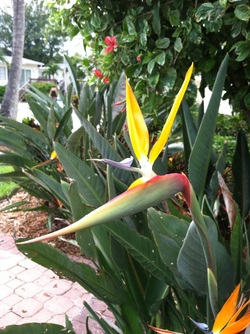 How beautiful is this? I am in Sanibel, FL for several days, sleeping, swimming, and soaking up the sun - taking a little time before classes start back. This morning I spotted this amazing work of nature next to the pool and, even though I am no botanist and don't ever remember learning this fact, I immediately knew that this plant is a "bird of paradise" flower. How could it have any other name? Do you know what the bird of paradise flower is believed to symbolize? Among its meanings are a "good perspective," freedom, and faithfulness. Back in the day, in Victorian times, most people could tell you such things - the meanings of different flowers - at the drop of a hat. What a world that must have been - when one would just unconsciously soak up these romantic facts about flowers without even being aware of it. What a world that must have been - when even small children could easily identify most trees and flowers and birds, again with little awareness of having learned the names. I love being near the ocean. This is my first time in Sanibel, which is famous for the shells on the beaches. I have seen a few, and have just let them be. What I am appreciating about Sanibel is its true beachiness (is that even a word?). The beaches are not clean-swept each morning, as beaches in some other places are - on your morning walk here, you are apt to find abandoned crab-legs or broken sand-dollars or stranded jelly-fish, mixed in with what seems like millions of different kinds of seaweed. Flotsam and jetsam - it is what is naturally deposited by the sea world each day. I have seen lots and lots of birds here - huge brown pelicans with wing-spans of six or seven feet, dive-bombing for their lunch; dainty and dignified snowy egrets, delicately walking along the sand in their golden slippers; ospreys on their nests high in the trees. And I have seen other critters - most notably, lots and lots of geckos - who do not, by the way, sell insurance or speak with a British (or is it Australian?) accent as suggested on TV! Speaking of TV and other "electronica" - I am obviously a little plugged in down here, as I am writing this blog, but I am minimizing my connections this week as much as possible - hard habits to break, I admit. I have my phone with me only when I want to take photos or when I am in the car, and am trying to refrain from checking email. It is really hard to completely unplug, however - driving in the car, I find myself automatically searching for NPR on the radio without even thinking consciously about it, and thus end up absorbing lots of news about the world beyond here. What I am absorbing is not names of flowers or birds - it is stories about the GOP bashing of EPA. Protests and hunger strikes in India, where citizens are fighting rampant corruption among those in power. Investigations of S & P's role in the mortgage fiasco of 2008 and the years leading up to it - side-by-side with analyses of what our drop in credit rating really means. Heavy sigh. Alternative medicine guru Andrew Weil, MD, has advised taking periodic news fasts - he maintains that our 24/7 exposure to what we call "news" is one big source of negative stress - which, over time, can cause pretty significant health problems. So, I am going to try the news fast for my remaining days of vacation, and I am going to really try to be present to the true "news" all around me... the three scavenging sea gulls fighting over one fish, the two German kids playing with the gecko on the deck, the older couple kissing and canoodling out in the surf, the gorgeous tropical flowers that look like other-worldly creatures poised to take flight, the talents of the chef at Traders Restaurant - have you ever had "white gazpacho"? Stay tuned for the recipe - out of this world. And I am going to stay tuned in to my feelings of being part of a loving world - though I am down here on my own, I know that Steve and Michael and Julie and Leah and Paolo and all of my family and heart-friends are out in that big world beyond, making things better in their own corner of the world. A "good perspective," I think. And what is the important "news" in your world? 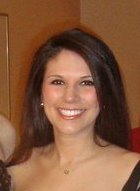 Thomas Doherty, the editor of peer-reviewed Ecopsychology, practicing psychologist, and professor at Lewis and Clark in Portland, Oregon, talks a lot about "personal sustainability." Using his questionnaire, we can examine our own emotions and thoughts, our physical health, play and creative lives, relationships with other people, our communities, and the natural world, to assess our own health and well-being. How much in balance are we? Are we living our lives in ways that can be sustained in a healthy, thriving way over the long-term? I have witnessed and experienced un-sustainable lives - ways of life that are not healthy and that cannot sustain one's being over time. My sweet and brave daughter, Julie, has experienced such a life herself, suffering with an eating disorder for seven years, and has offered to share her story with you - and to share information about how we can advocate for research that can help prevent and treat eating disorders. Here is Julie's story, in her own words - she has shared this with many young people in high school and college: I want to begin by sharing a story with you all – a story about a shy little girl who spent her free time dreaming about all of life’s wonderful plans and possibilities – a little girl who was quite confident that these hopes and wishes would come true. She loved everything beautiful from silver sparkle jellies and bright pink nail polish to princess Halloween costumes and dress up clothes her mom had secretly bought at Goodwill. She built a pretend office in her walk-in closet to play secretary with her best friend Natalie and she set up three dollhouses on the dining room table, spending hours rearranging furniture and making up stories about the lives of her families. This little girl had an endless amount of creativity and motivation and never once questioned whether or not her dreams would come true. This little girl was me. Flash forward to late middle school and early high school. The little girl I once was began to fade into the background as goals took on the form of straight A’s on a report card and dreams turned into becoming valedictorian and attending an Ivy League school. My days became filled with honors classes I rarely enjoyed but had to pretend I loved and hours upon hours of homework that continued far into the night. Sleep was of little importance or so I told myself and having fun was the last thing on my list. It didn’t matter whether or not I wanted to do what I was doing; I simply had to and I knew no way out. During the fall and winter of my sophomore year, I found an outlet for some of my stress about academics and success – a new project focused on my outward appearance. I woke up at 5:30 in the morning to flat iron my hair, I was always running late as I threw clothes around my room until I had found the perfect outfit, and I began to eat as little as I could in hopes of getting to that magic number on the scale. Now this is in no way to say that school was the sole cause of what later became a full-blown eating disorder – there were the typical family issues, the obsession with images in the media, and an overall lack of positive self-esteem – but my focus on being the perfect student certainly added fuel to the fire. As the year progressed, I became increasingly entrenched in my rigid eating and exercise habits and spent far too much time critiquing my body in front of the mirror. Family, friends, and doctors had begun to notice my behavior and were concerned with how thin I had become. They all told me I could not lose any more weight and suggested I get some help. Yet, at the time, I could not understand what they were so worried about; it was as though they were trying to tell me I needed to stop the one thing in life that made me feel calm, the one thing I was certain I could succeed at. However, the high of feeling in-control and powerful could not last forever. By the end of the summer, I knew that something was wrong, that I wasn’t happy, that I was always anxious, and that I had fully lost that all that desire and creativity I once had as a little girl. But stubborn as I was, I would not change what I had become and so I waited until my parents took action and decided to sign their 16-year-old daughter into treatment. To make a long story short, as I feel the details of my time in treatment are not necessary to who I am today, I will simply say that the seven years I spent going through the revolving door of relapse and recovery was the hardest thing I have done to date. I had to hit rock bottom time and again before I realized that I was sick of being sick, that I needed to change something, and that I couldn’t do this alone. Although I didn’t know what I wanted for myself, I knew what I did not want, and that was my life the way it was with an eating disorder. Throughout my ups and downs in treatment, one thing remained consistent: I was becoming alive again. I began to feel all kinds of emotions that I had blocked for years – anger, sadness, happiness, love. I began to notice hunger cues and cravings for so-called forbidden foods that I had denied myself of for so long. I began to have hopes and dreams again – I wanted to go back to school and to have friends and a boyfriend and a job I loved someday. I began to let down my guard and to open myself up to the possibilities life had to offer. Now I will not lie, the path to recovery is not simple or neat or ordered or anything my once OCD self thrived upon. There were highs and lows and all kinds of in-betweens – which I later learned is how everyday life is even without an eating disorder. But in spite of any pain or struggling I had to experience, the work was worth the reward. As I speak to all of you today, I have been out of treatment for a little over a year [now two] and I can honestly say I didn’t always believe that my life as it is today would be possible. I had fought and fought for so long that I sometimes didn’t even know what I was fighting for. Yet, here I am, twenty-four years old and finally living those dreams that the little girl in me always knew I could. No, my life is not perfect; not everything is sparkly jellies and princess costumes. I was not valedictorian of my high school nor did I go straight to a top-notch school. But I am happy. Day by day, I am learning to accept my flaws, to ask for help when I cannot do it alone, and to admit that sometimes I am scared and unsure. I do not always love how I look or the way my clothes fit on my healthy self. I have my moments, although they are becoming less frequent, where I want to restrict again or run just a little bit too far. But by the end of the day or week or however long it takes, it always seems to turn out okay. If I can leave you all with one thing today, with the most valuable thing I have learned throughout my recovery process, I want you all to know that it is okay, in fact it is perfectly wonderful, to be you, in your purest form, to follow those dreams of the little girl or boy inside of you, to live in a way that makes you happy. I agree that academics, a career, finding your ideal city, and so on, are all important things in life. We would not move forward if we never had tangible goals. But when push comes to shove, it is being true to ourselves and surrounding ourselves with people who do the same that keeps us alive. Everything else just seems to fall in place. So that is Julie's story - and her brother Michael, her dad Tony, and I each have our own stories about those seven years. I can tell you that the prayer at the front of my mind and heart each day when I woke up and each night when I went to sleep (or tried to sleep) was about Julie - and how we could help her become whole again. She traveled her path to recovery courageously, as we walked our paths alongside her, and she came out the other side whole. As a vibrant and wise young woman of 24, Julie is well aware of what is needed to live a life of personal sustainability, of joy and strength. Julie has been active with the National Eating Disorder Association (NEDA), organizing campus activities to educate students and working with others to plan the annual St. Louis NEDA walk to raise funds for research. If you would like more information about how to help, please visit here. If you know others who have struggled with lives that cannot sustain health and well-being, you may share her story with them. There is hope. Joyful Julie - Today and Long AgoCheck out CNN's documentary on Blair Mountain. CNN promises to "go behind both sides of the fight over mountaintop removal for coal. Is it creating jobs or poisoning communities?" Watch the story unfold at 8 p.m. ET/PT Aug. 14.
|
AuthorMary Beth Mannarino is a licensed psychologist who provides coaching in the areas of leadership, career, life, and parenting. She is also an environmental and climate educator and activist. Dr. Mannarino is professor emeritus at Chatham University where she continues to teach courses to students in health professions related to environment and well-being. 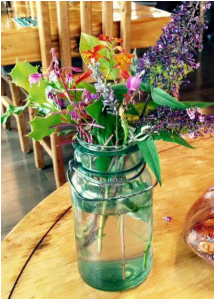
My Bloggy Rules...
I write about my own experiences, opinions, dreams, and ideas. I invite you to share your ideas, and to be part of a dialogue. I will make mistakes! But it is great to take the risk to put this out there and, more importantly, to hear from you. Archives
December 2015
Categories
All
|
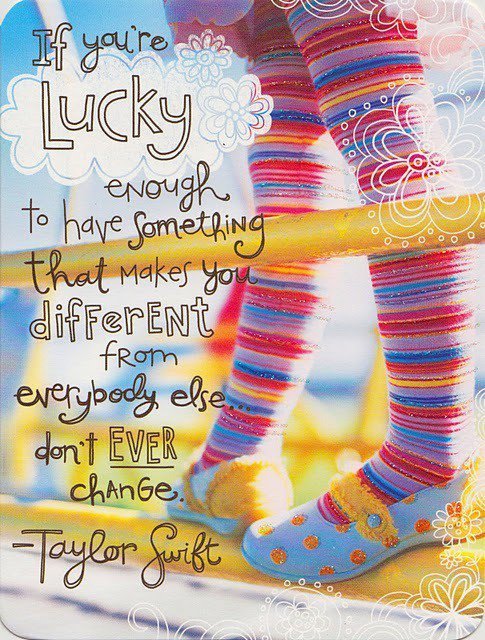
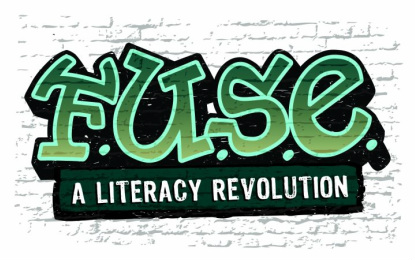

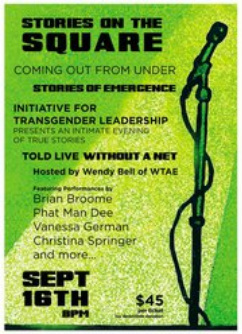
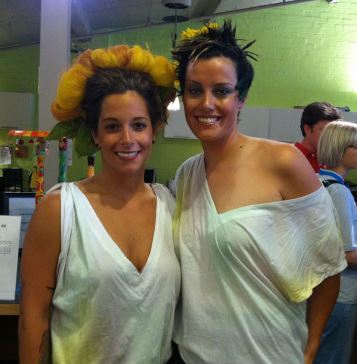
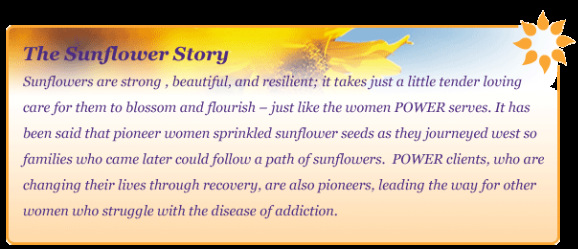

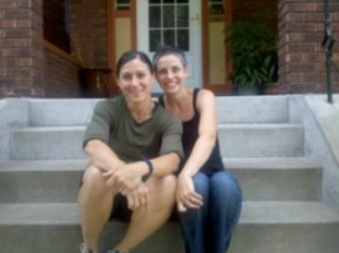
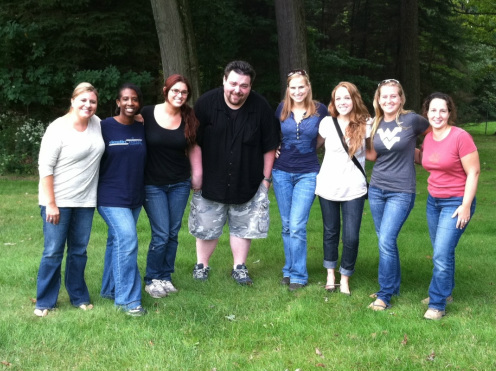
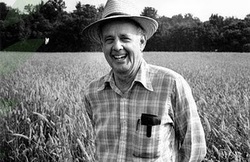
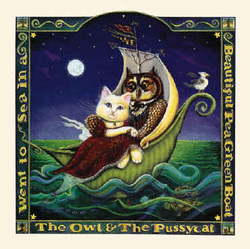
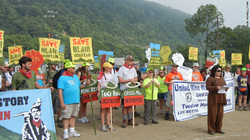

 RSS Feed
RSS Feed
